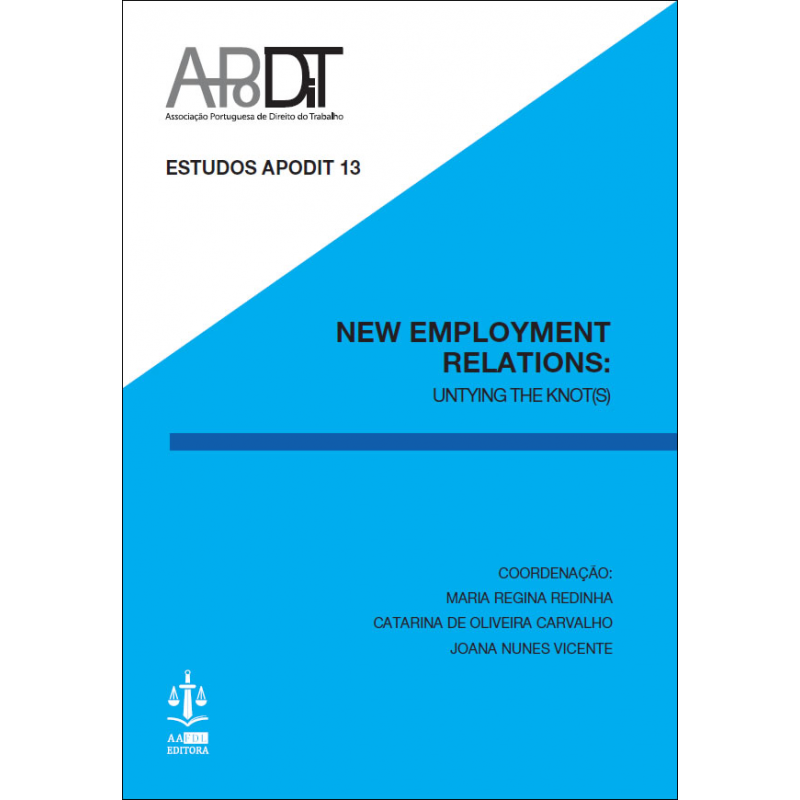



 SAFE PAYMENT
SAFE PAYMENT
Secure payments directly managed by banks. ATM, MBWay and Paypal available.
 FREE SHIPPING FROM 25€
FREE SHIPPING FROM 25€
Deliveries in 2 to 3 business days (except holiday period).
 CUSTOMER SUPPORT
CUSTOMER SUPPORT
We are available to clarify all your doubts.
FOREWORD
In the rapidly evolving landscape of our global economy, technological advancements are reshaping the very fabric of work and employment. From automation and artificial intelligence to the gig economy and remote work, the profound changes initiated by technology are challenging traditional notions of labour relations, workers’ rights, and employer responsibilities. As we embark on this exploration of technological changes in labour law, we find ourselves at a crucial juncture where law, ethics, and innovation intersect and where new employment contracts and relationships take form every day. Historically, labour law has adapted to the needs of the workforce and the demands of society. However, the pace of change today is unprecedented.
Innovations that once seemed far-off are now ubiquitous, transforming how work is conducted and who participates in the labour market. This evolution raises essential questions: How do we protect workers in an environment where job descriptions and employment structures are continuously shifting? What measures can be adopted to ensure that technological advancements serve to enhance rather than undermine workers’ rights? How do we face adverse demographic conjuncture and post-pandemic changed work environment?
APODIT – Portuguese Labour Law Association has organised several conferences both national and international and workshops to encourage a critical approach to the main problems arising from this paradoxical connection between labour law and technology.
This book is the combined result of several of those discussions but mainly the output of the seminar “New Employment Relations: Untying the Knot(s)” of the Western Europe Associations of the ISLLSS – International Society of Labour Law and Social Security “New Employment Relations: Untying the Knot(s)”, held in Lisbon, in April 2024, upon the initiative of the then vice-president of ISLLSS and former APODIT President, Professor Maria do Rosário Palma Ramalho.
ÍNDICE
| The new EU-Directive on improving working conditions in platform work - Kurt Pärli
| Unionism and collective bargaining of non-employees - Eleni Dionissopoulou / Aggeliki Kaissari
| The greening of active labour market policies - Riccardo Salomone
| Remote and hybrid working arrangements - Carla Spinelli
| Working time regulation for platform work and other new forms of employment - Diego Álvarez Alonso
| Implementing workers’ right to disconnect – guiding principles of the European Law Institute - Karine Lempen
| Work-life balance: old concerns, new challenges - Panagiota Petroglou
| Employer of record (EoR): general overview - David C. Martins
| AI and collective representatives - Bernd Waas
| Some preliminary remarks on the difficulties posed by the Whistleblowing Directive and its transposition - Júlio Gomes
YOUNG SCHOLARS CONTRIBUTIONS
| The determination of the jurisdiction applicable to transnational remote contracts. Notes on case C-383/95 of the Court of Justice of the European Union - Camilla Martins dos Santos Benevides
| Algorithms, discriminations and platform work - Giulia Perri
| The transition to green jobs within the EU framework: social protection and the transnationality of labour - Rita Marques Nossa
| New models of employee management: the employer of record and legal implications for Italian law - Federico Pisani
| Regulating platform work: recent developments from the European Union and their (potential) impact on Italy - Umberto Izzo